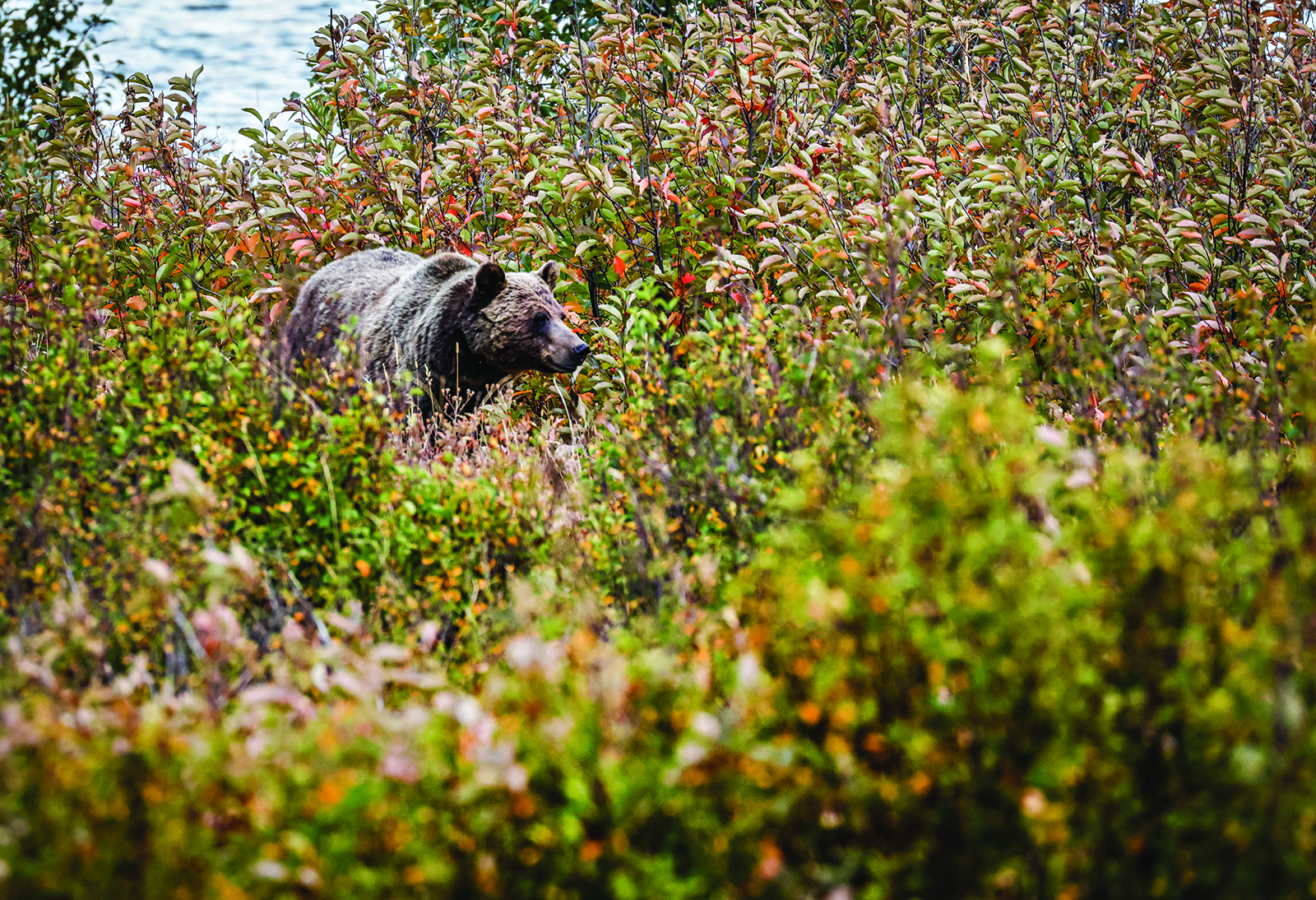Flathead Forest Plan Faces Another Road Rules Revision on Grizzly Bear, Bull Trout Habitat
According to a federal magistrate’s recommended findings in a lawsuit, the Flathead National Forest’s current management plan fails to accurately calculate road density for new logging projects
By Tristan Scott
Whether a logging road has been “reclaimed” or merely rendered “impassable” isn’t a distinction most members of the public consider while hiking or skiing on the Flathead National Forest’s 2.4 million acres of land. However, it is a standard that has become the central point of contention in a lawsuit that could force the federal agency to reconsider how it calculates road density in grizzly bear and bull trout habitat when approving logging projects.
In a legal dispute that began in April 2019 when two local conservation groups sued the U.S. Fish and Wildlife Service (FWS) and the Flathead National Forest (FNF) over the road-building provision in its revised forest plan, U.S. Magistrate Judge Kathleen DeSoto on March 11 issued a 47-page set of findings and recommendations that partially favored the plaintiffs’ claims, including by determining that FNF’s current road management plan does not account for the impacts of illegal motorized use of logging roads after they’re removed from the forest’s road density inventory. Although the court and the litigants recognize that “illegal use is always possible,” DeSoto’s recommendations insist that the calculations “must account for unauthorized motorized use.”
DeSoto also agreed with the plaintiffs’ assertion that FNF’s failure to fill culverts as part of its plan to render roads “impassable,” rather than reclaiming them by restoring them to their natural state — including by removing culverts and recontouring the roadbed — is out of step with the agencies’ own biological opinions.
“The government admits that illegal use of closed roads is a chronic problem, but has twice failed to account for those additional impacts to threatened grizzly bears,” said Keith Hammer, chair of Swan View Coalition, which is one of the groups litigating the matter. “We are pleased that the court has again sent the agencies back to the drawing board.”
The FNF is part of several regional ecosystems and recovery units that support populations of grizzly bear and bull trout, which are both federally listed as threatened under the Endangered Species Act (ESA), including the Northern Continental Divide Ecosystem (NCDE), one of six grizzly bear recovery zones. The FNF also plays a central role in the region’s timber industry, supporting roughly 1,500 jobs and $50 million in labor income, according to DeSoto’s findings.
The FNF’s 1986 Land and Resources Management Plan provided the framework for forest management for several decades. In 1995, forest officials adopted a change to the plan called Amendment 19, which required the FNF “reclaim” any road it wanted to delete from its total motorized route density (TMRD) calculations. A reclaimed road is a road that “has been treated in such a manner so as to no longer function as a road or trail and has a legal closure order until reclamation treatment is effective.” Road reclamation was accomplished by “recontouring to original slope, placement of natural debris, or revegetation with shrubs or trees,” the plan states. At a minimum, the treatment requirements included the removal of culverts.
But forest plans must undergo a revision at least every 15 years, and in 2018 the FNF revised its 1986 plan and replaced Amendment 19’s “reclaimed” road standard with an “impassable” road standard. Under the revised plan, impassable roads no longer count toward total road density if the road —generally the first 50 to 300 feet — has been treated to make it inaccessible to wheeled vehicles during the bear’s non-denning season
The lawsuit filed by Friends of the Wild Swan and Swan View Coalition says the new plan’s shortcomings provide insufficient safeguards to grizzly bears and bull trout. Specifically, it targets the FNF’s revised plan that allows for significant new roadbuilding without setting a sufficient standard for reclamation after a timber sale is complete.
“What we’re most disappointed in is the fact that this is the second time that they have done this,” according to Hammer, who explained that FWS made a series of revisions to its biological opinion in 2019 that he characterized as “inadequate,” prompting the groups to sue again in 2022. “They’re using the same faulty logic now that they used as the basis for their revised Forest Plan, and while we appreciate that the judge has since sent them back to the drawing board they’re still out there building roads on grizzly and bull trout habitat, and at some point the agency isn’t going to take these directives to remedy the problem seriously unless they get told to take their hand out of the cookie jar.”
In 2019, the same groups challenged the FNF’s 2018 revised forest plan, as well as its accompanying Environmental Impact Statement (EIS) and the FWS’ biological opinion. In that case, U.S. District Judge Donald Molloy ruled in the plaintiffs’ favor, writing that the agencies’ analysis of impacts to grizzly bears and bull trout violated the ESA, particularly in its “arbitrary abandonment” of the prior forest plan amendment, Amendment 19, which the agencies credited with conserving the species.
Following DeSoto’s March 11 findings and recommendations, both the plaintiffs and the defendants have an opportunity to object before U.S. District Judge Dana Christensen issues a formal ruling.
While DeSoto’s findings agreed with the conservation groups on key points, it also recommended leaving the challenged plan provisions in place while the federal agencies attempt to cure defects in their analyses of the plan’s impacts. Hammer said the groups continue to review the ruling and are considering all options.
Kira Powell, the FNF’s public affairs officers, said in an email that the agency “respectfully declines to comment on ongoing litigation.”